15 Trans Fats Foods To Avoid For Weight Loss And Better Health
Cut out these foods from your diet to shed those extra pounds and stay fit.
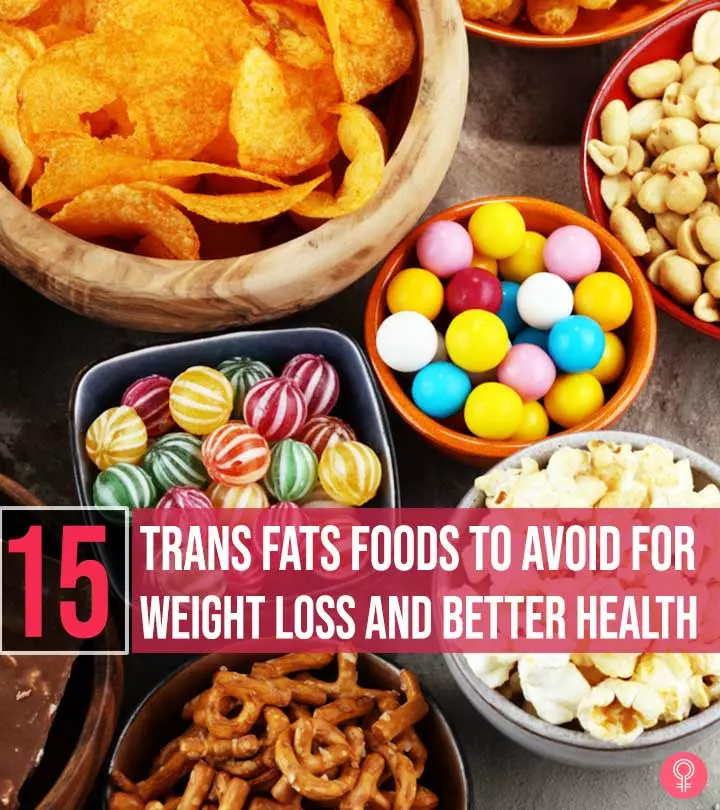
Image: Shutterstock
There are many trans fats foods you must avoid for weight loss. In fact, excess consumption of trans fats has increased the risk of obesity, heart disease, and cancer (1), (2). Therefore, the FDA restricts trans fats consumption (3). But it is overconsumed daily by adults and kids worldwide in the form of junk foods or fast foods.
A study was conducted on 10,001 US adults to examine the amount of junk intake. It was categorized under energy, total sugar, sodium, and saturated fat sections with its roots from junk food sources. The study found that 47% of energy, 75% of total sugar, 46% of sodium, and 48% of saturated fat were being consumed by US adults taken up on a daily basis.
Trans fats cause weight gain. And losing that weight can be hard as foods loaded with trans fats are addictive. You cannot easily give up eating these unhealthy foods. Want to get fit, feel energetic, halt aging, and get rid of excess fat? Avoid consuming these 15 trans fat foods that belong to the bin instead of your gut. Scroll down!
But first, know why trans fats are bad for health. Let’s go back to basics and understand what trans fats are and what they do to your body.
In This Article
What Are Trans Fats?
Trans fats are unsaturated fatty acids that are generally used in high-calorie foods. They are found in meager amounts in milk, butter, lamb, and beef. The chemical structure of the unsaturated fatty acids has more than one double bond and a “cis” (on the same side of the double bond) configuration. However, many food companies routinely use trans fats by partially hydrogenating the cis-trans fats. The trans configuration helps enhance the taste, increase the shelf life, and is inexpensive. But this “trans” (diagonally opposite side of the double bond) is dangerous for your health.
These trans fats lower the good cholesterol (HDL cholesterol) and increase bad cholesterol (LDL cholesterol), thereby increasing the risk of heart disease and stroke. They also cause weight gain, which ultimately leads to diabetes and obesity-related health complications.
 Trivia
TriviaSo, it is best that you avoid foods that are high in trans fats. Scroll down to take a look at the 15 high trans fats foods.
Key Takeaways
- Trans fat foods may cause multiple health issues.
- Trans fats may increase bad cholesterol levels and contribute to obesity and heart disease.
- Butter, lard, blended vegetable oils, fried foods, and baked goodies are some foods high in trans fats.
- Reading food labels may help identify foods containing trans fats.
15 Foods High In Trans Fats
1. Cakes And Pies
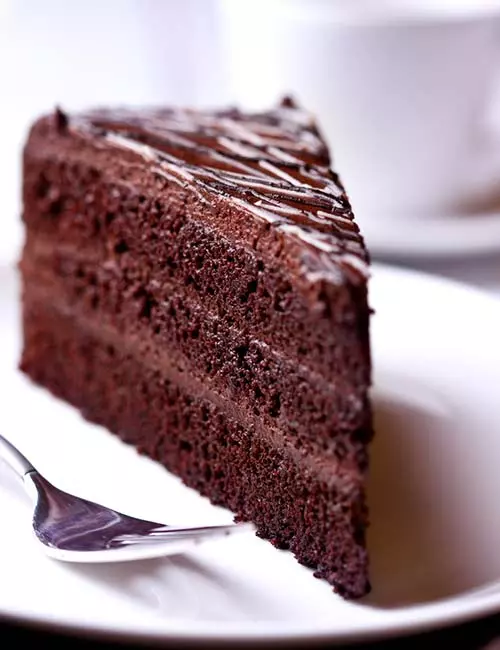
Cakes and pie mixes contain a lot of trans fats and are among high-fat foods. Though they may list 0 trans fats, according to the rules and guidelines, the companies are allowed to write 0 g trans fats if they contain 0.5 g trans fats per serving. And as you know, not many of us stick to just one serving. Several servings can make you pile on trans fats and lead to arterial blocks in the long run.
2. Biscuits, Cookies, And Crackers
Biscuits, crackers, and cookies all have a flaky texture. And most food companies use trans fats to build the crunchy texture that we love so much. Trans fats increase the shelf life, which allows them to sell the product for a longer time and helps the buyer to store them for months. Make biscuits, cookies, and crackers using healthy oils and less sugar or a substitute of refined sugar, which are healthier than the packaged ones.
3. Margarine, Butter, Tallow, And Lard

Animal fats like tallow and lard and dairy fats like margarine and butter are storehouses of unhealthy trans fats. A pat of butter contains 0.2 grams of trans fats, but we consume a lot more butter than just a pat of it per day. One tablespoon of margarine contains 2.1 grams of trans fats, and tallow and lard are animal fats used to make fries and other fried foods. At high temperatures, tallow and lard become toxic and unhealthy for your heart.
4. Microwave Popcorn
The flavored and crispy popcorn in the movies is a match made in heaven. But make sure you don’t get your ticket to heaven so quickly! Popcorn, in general, is a great source of fiber and vitamins, but not microwaved or movie popcorn. So, it is best to avoid consuming packaged popcorn.
5. Breakfast Sandwiches
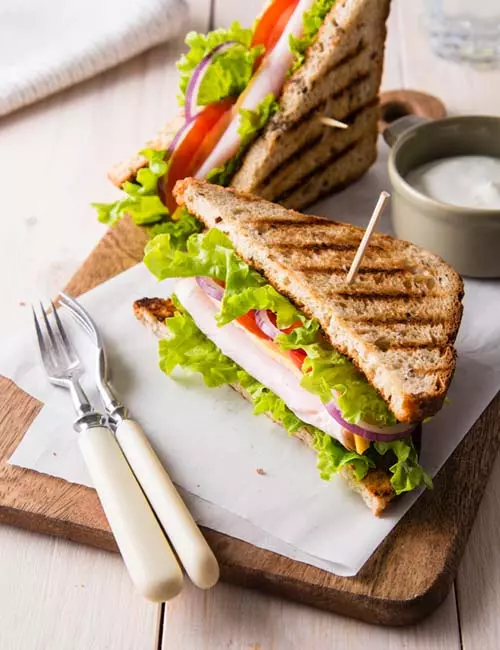
If you are in the habit of grabbing a packaged sandwich in the morning, you are probably consuming a whole lot of trans fats in the first meal of your day. The packaged sandwiches contain about 1 gram of trans fats and have other ingredients that contain partially hydrogenated oils. So, avoid consuming packaged breakfast sandwiches. Have a bowl of oatmeal instead.
6. Doughnuts
Many of us loovee doughnuts. But they are loaded with carbs, and the deep frying in oil also makes them overloaded with trans fats. And if you have icing on them, you are probably consuming the worst and dangerous type of doughnuts. Ban doughnuts from your diet completely to improve your heart health and blood lipid profile.
7. Cream-Filled Candies
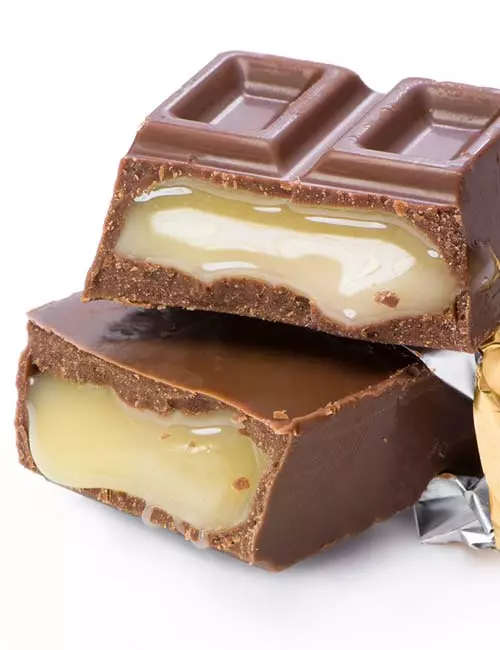
Cream filled candies are yummy and gooey. And each candy contains about 0.5 grams of trans fats. But the catch is, we don’t stop at just one candy, do we? Consuming too many cream-filled candies can build up a ton of trans fats in your body. Plus, they are loaded with sugar, which will make you gain weight and prevent you from losing it.
8. Fried Foods
Crispy fried foods taste great, and the crunch adds to the whole experience of the food. The labels may say 0 g trans fats, but as mentioned before, the FDA allows the companies to declare 0 g trans fats in one serving if they contain 0.5 g trans fats per serving. We tend to overconsume fried foods because they taste great, and we literally cannot stop ourselves. So, it is best to avoid consuming fried foods at all occasions.
9. Frozen Foods
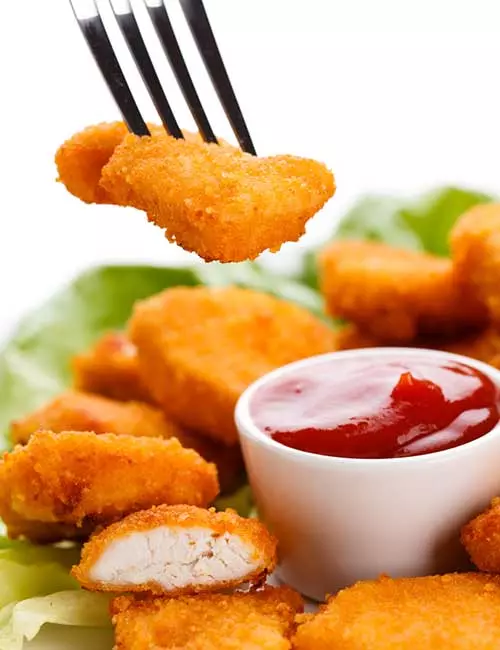
Frozen foods like frozen pizza and frozen ready-to-eat foods are high in trans fats along with carbs, salt, and sugar. These contain about 1 g trans fats per serving, and just like any other fried food, we all can go overboard and consume a lot of them without even realizing it. Avoid buying these foods so that you can cut down on your trans fats intake.
10. Peanut Butter (Excluding Natural Peanut Butter)
Peanuts are healthy, but they are also high in calories. Peanuts contain healthy fats – but they can only help if you consume them in limited amounts. Partially hydrogenated palm oil is used in packaged peanut butter to prevent the natural oils found in peanut from rising. And this is where things go downhill for peanut butter lovers. The next time you think of finishing half the jar of peanut butter, think of the number of trans fats you are consuming and what it can do to your heart. Choose natural peanut butter that you have to stir to mix. These do not have trans fats and are definitely part of a healthy diet.
11. Blended Vegetable Oils

Blended vegetable oils are a blend of vegetable oils that are refined, deodorized, and bleached. These vegetable oils are used in cooking, frying, baking, icing, filling, and savory glazes. The more you heat the oil, the more the chances that you will consume trans fats. Avoid deep frying or stir-frying foods in these oils. Also, choose a healthy substitute for these oils to keep the trans fats levels to the minimum.
 Quick Tip
Quick Tip12. Baked Foods
Baked foods like puffs, patisseries, croissants, and tarts are delicious but are weight-gain foods loaded with trans fats—especially packaged ones. The trans fats make these foods crispy and flaky, which adds to the taste. Try making them at home using healthy sources of fat. They may not turn out “restaurant-type” but will definitely be the “healthy type.”
13. Pancakes And Waffles
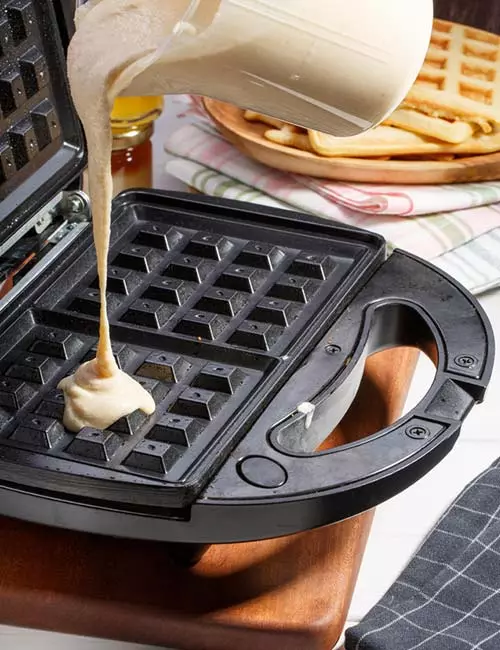
Great for breakfast, yes, but not so great for your health. Especially if you prepare the pancakes and waffles with a readymade pancake and waffle mix. Prepare the batter at home and use a healthy oil or none at all to make the pancakes.
14. Ice Cream
Ice cream lovers, here’s the bad news. The ice creams that you get from the market are high in sugar and trans fats and can increase the risk of heart disease, obesity, and diabetes.
A blogger shared their experience of losing weight and the foods they avoided in the process, stating, “Cutting down majorly on sugar (other than fruits) has been an eye-opening experience. After cutting down, I realized that sugar was causing lots of ups and downs in my mood. I would crave sugar (typically in the afternoon, in anticipation of an evening snack) and then get a sugar high with the snack. After giving up sugar, I found my day to be more peaceful and energetic (i).” Instead, the blogger includes dry fruits in their diet as an alternative to the added sugar found in processed foods and sugary beverages.
You can make some homemade popsicles or add fruits to frozen yogurt or just make a batch of ice cream at home.
15. Non-Dairy Creamers

Non-dairy creamers do not contain the traditional cream. And to make up for the taste and texture, they contain trans fats, especially the flavored ones, like French vanilla, hazelnut, etc. Use traditional creamers or consume black coffee or green tea to avoid consuming trans fats from these creamers. You may also use almond milk, which is a great non-dairy alternative to put in coffee.
Excess consumption of trans fat foods may increase heart disease risk. But are they better than saturated fats? Find out in the next section.
Which Is Better: Trans Fat Or Saturated Fat?
Both trans fats and saturated fats are types of dietary fat. However, there are key differences between the two. Saturated fats are found in animal products like meat and dairy and plant oils like coconut and palm oil. While excessive intake of foods high in saturated fats can raise LDL (bad) cholesterol levels, it is generally considered less harmful than trans fats (4), (5).
Trans fats involve turning liquid oils into solid fats. They are commonly found in fried foods, baked goods, and processed snacks. Trans fats not only raise LDL cholesterol but also lower HDL (good) cholesterol, significantly increasing heart disease risk (4).
Health experts recommend minimizing both trans fat and saturated fat intake and opting for healthier unsaturated fats to promote heart health (6).
Consumption of trans fats can increase the risk of multiple health issues, including heart disease, obesity, and cancer. In addition, it leads to weight gain, so those who are looking to lose weight should avoid consuming foods with trans fats. Examples of some foods with trans fat to avoid for weight loss include cakes, pies, butter, lard, blended vegetable oils, microwave popcorn, biscuits, cookies, non-dairy creamers, fried and frozen foods, and ice cream. Trans fats are unsaturated fatty acids and are used widely in the food industry to improve the taste and shelf life of processed food products. By simply avoiding processed food, or reading labels thoroughly before consuming them, you can lower your trans fat intake significantly.
Disclaimer: “The content in this article is not intended to be a substitute for professional medical advice, diagnosis, or treatment. Always consult your physician before starting a diet, exercise, or supplement regimen. This article is intended for educational purposes only.”
Frequently Asked Questions
Is olive oil trans fat?
No. Olive oil is packed with monounsaturated fatty acids, which are beneficial to your health (7).
Is avocado oil trans fat?
Not significantly. Avocado oil is rich in monounsaturated fatty acids. However, anecdotal evidence suggests it may contain trace amounts of trans fat (8).
Is coconut oil trans fat?
Yes, in a minimal amount. Coconut oil contains monounsaturated and polyunsaturated fatty acids and a small amount of trans fats (9).
What are healthier alternatives to trans fats?
Choose fats like olive oil, avocado, nuts, and seeds. These provide healthier fats and don’t have the negative effects of trans fats.
How can I identify trans fats in food labels?
Look for “partially hydrogenated oils” in the ingredients list, as this usually means trans fats are present. Even if the label says “0g trans fat,” small amounts might still be there, so checking the ingredients list is key.
Illustration: Trans Fats Foods To Avoid For Weight Loss And Better Health
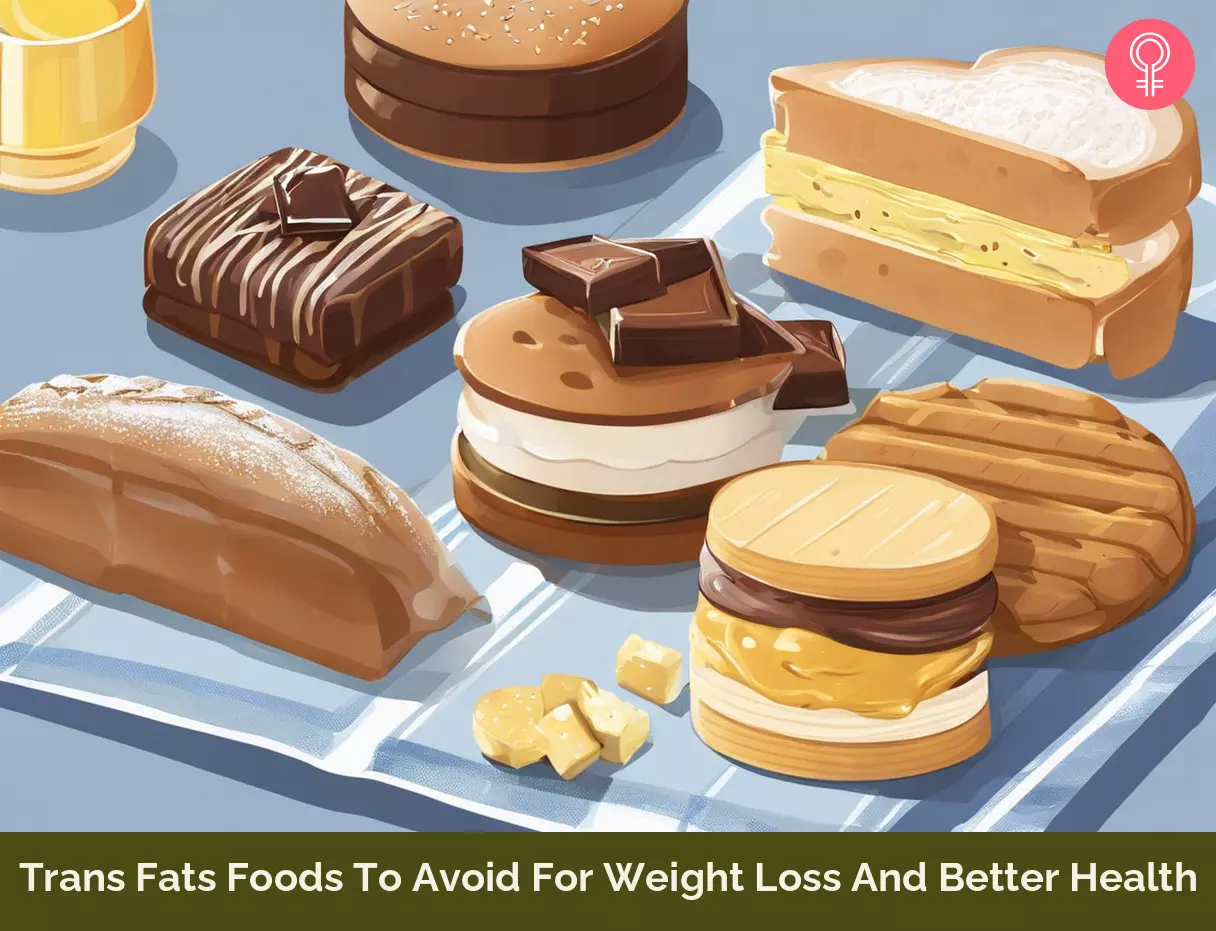
Image: Stable Diffusion/StyleCraze Design Team
Discover which foods still contain trans fats and how to avoid them. Learn the facts and make healthier choices for your family with the help of the video below. So, go ahead and check it out now!
Personal Experience: Source
StyleCraze's articles are interwoven with authentic personal narratives that provide depth and resonance to our content. Below are the sources of the personal accounts referenced in this article.
i. Weight loss ideas from Rujuta Diwekarhttps://despoki.blogspot.com/2017/01/weight-loss-ideas-from-rujuta-diwekar.html
References
Articles on StyleCraze are backed by verified information from peer-reviewed and academic research papers, reputed organizations, research institutions, and medical associations to ensure accuracy and relevance. Read our editorial policy to learn more.
- Trans Fats
https://www.heart.org/en/healthy-living/healthy-eating/eat-smart/fats/trans-fat - Trans fats—sources health risks and alternative approach – A review
https://www.ncbi.nlm.nih.gov/pmc/articles/PMC3551118/ - Trans Fat
https://www.fda.gov/food/food-additives-petitions/trans-fat - Trans Fats and its Health Effects
https://www.researchgate.net/publication/341727084_Trans_Fats_and_its_Health_Effects - Trans fats—sources, health risks and alternative approach – A review
https://www.ncbi.nlm.nih.gov/pmc/articles/PMC3551118/ - Fats – Saturated, Unsaturated, and Trans Fat
https://stacks.cdc.gov/view/cdc/146605 - Oil olive salad or cooking
https://fdc.nal.usda.gov/fdc-app.html#/food-details/171413/nutrients - Oil avocado
https://fdc.nal.usda.gov/fdc-app.html#/food-details/173573/nutrients - Oil coconut
https://fdc.nal.usda.gov/food-details/171412/nutrients
Read full bio of Rachelle Caves
Read full bio of Arshiya Syeda
Read full bio of Sindhu Koganti







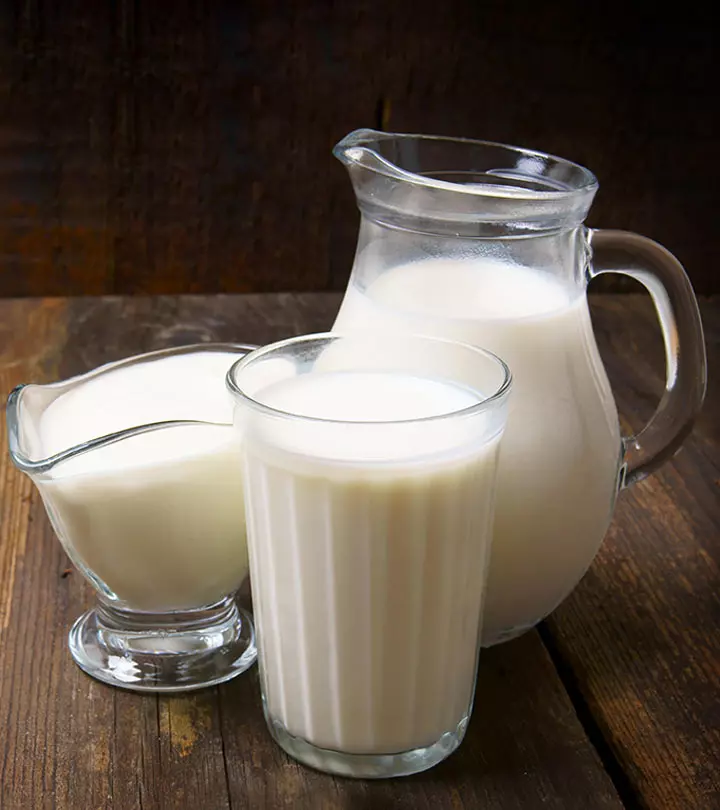
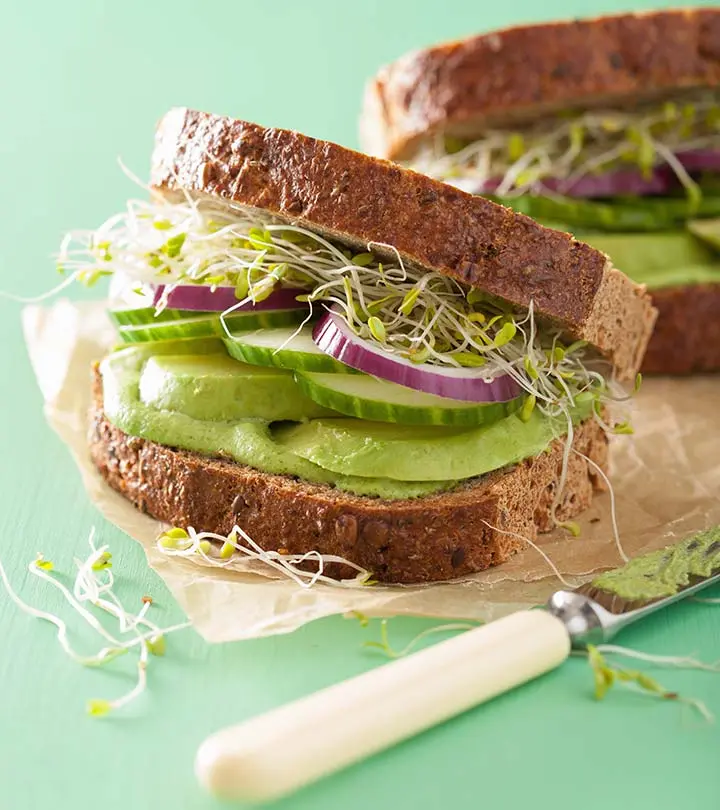


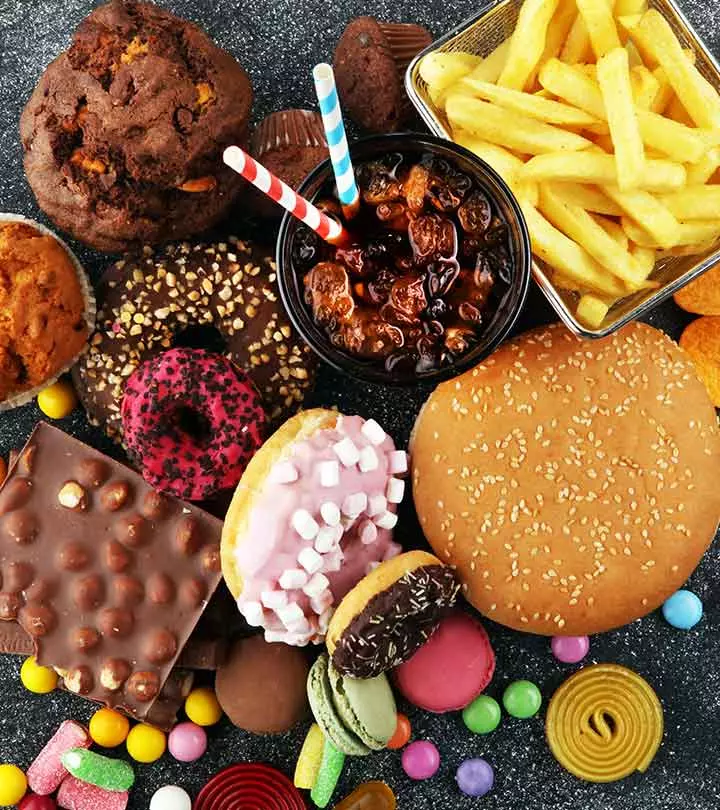
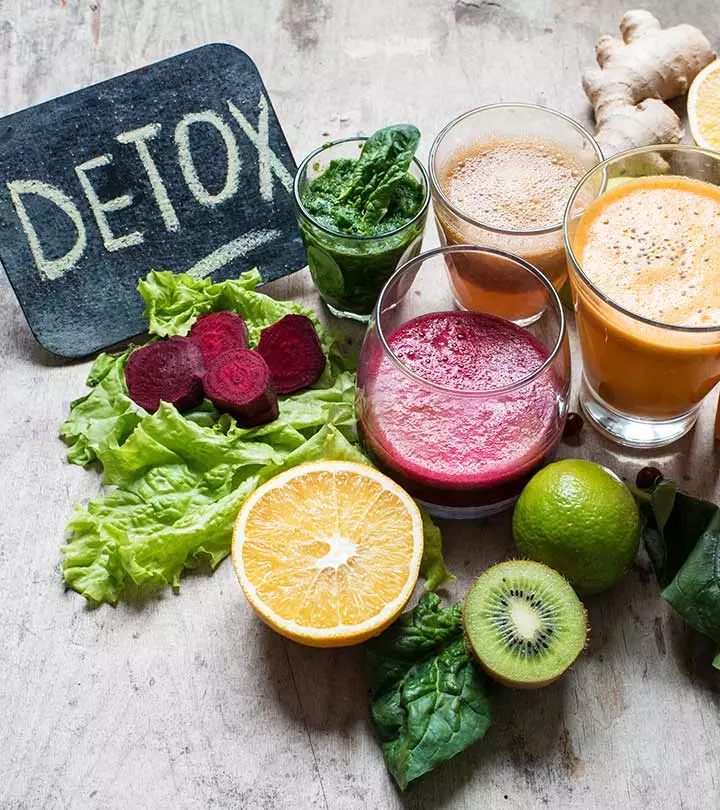

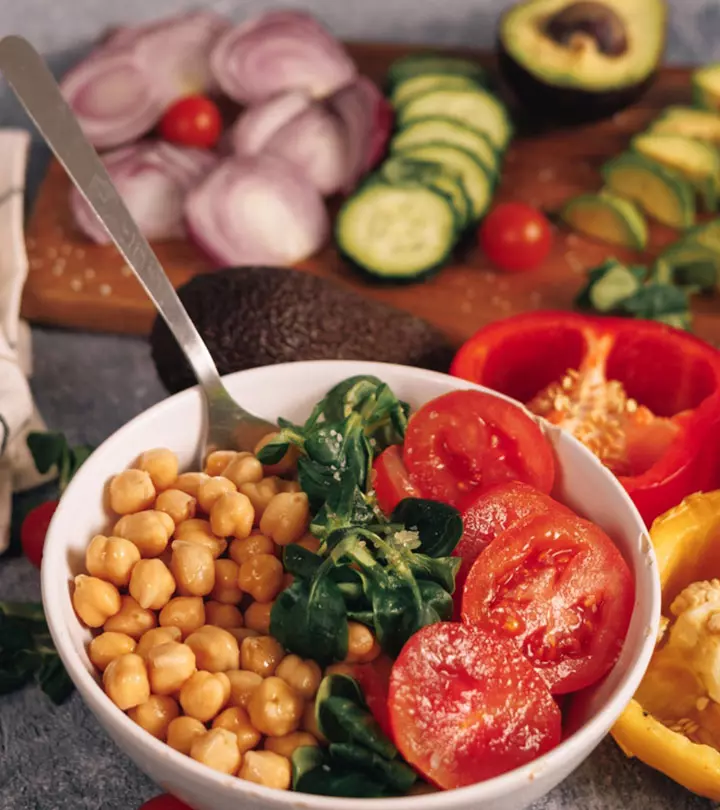
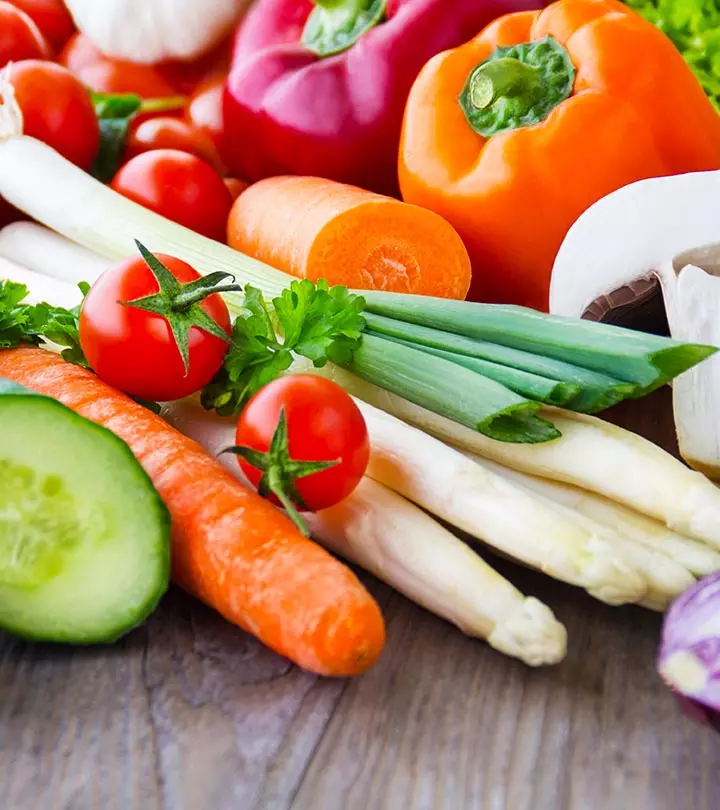





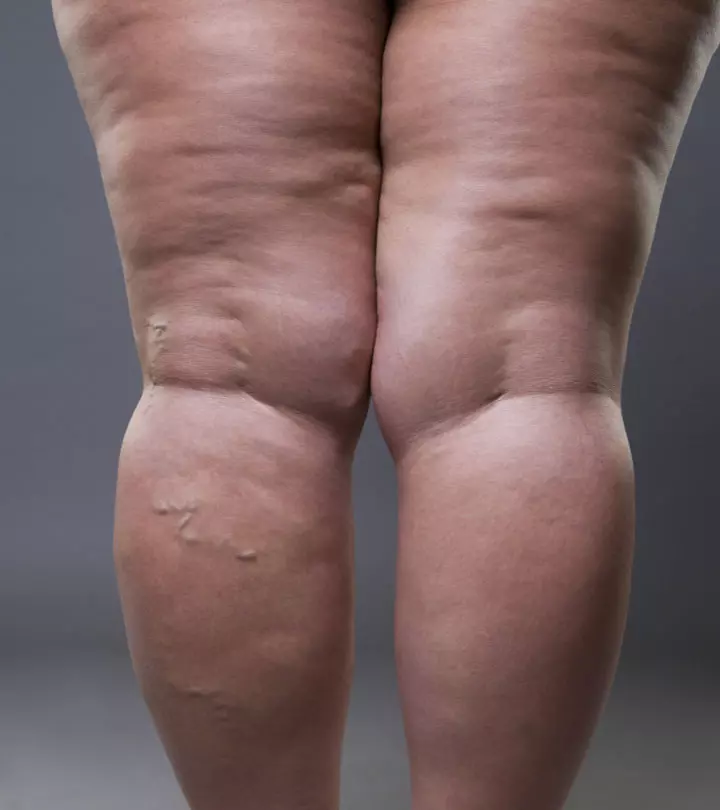
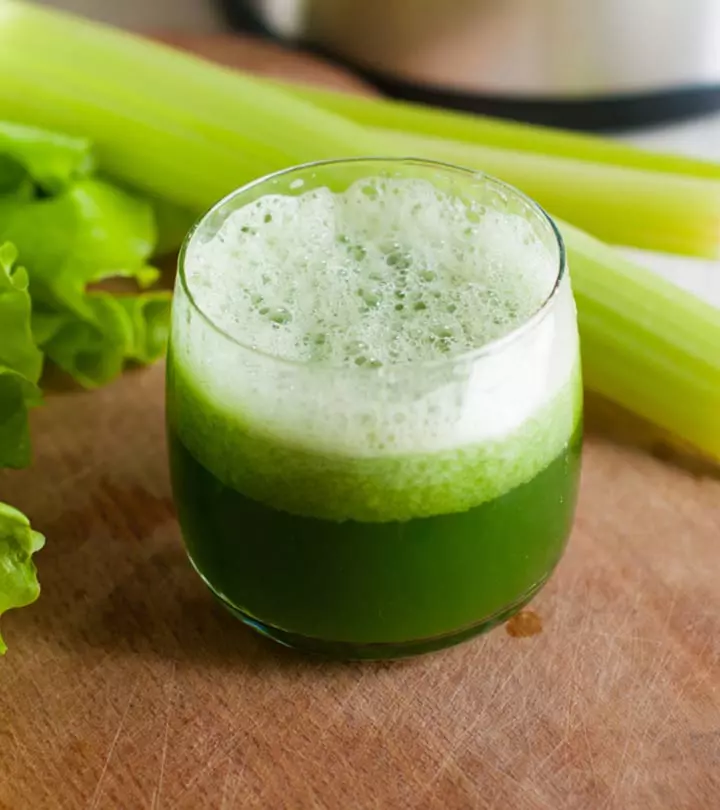
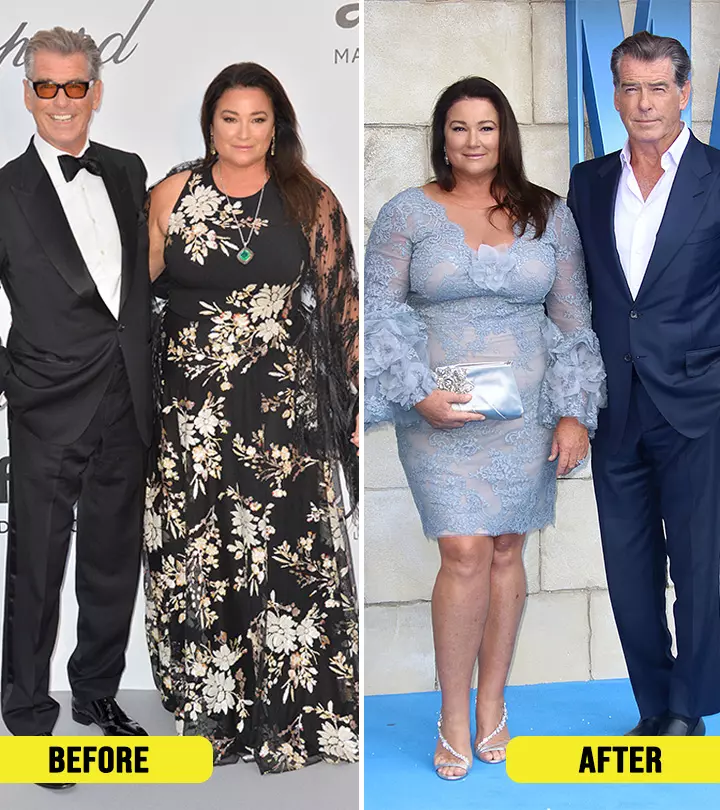

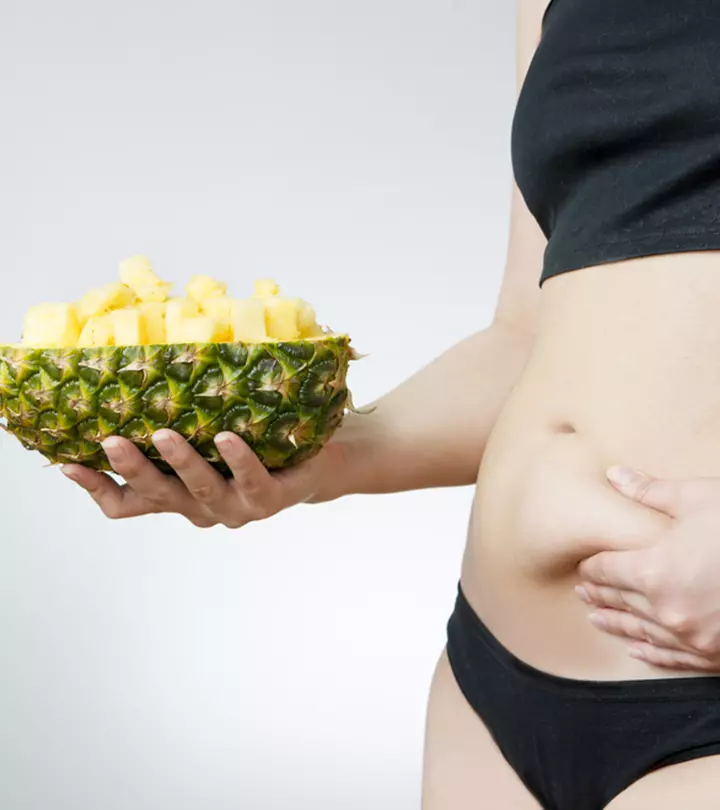

Community Experiences
Join the conversation and become a part of our empowering community! Share your stories, experiences, and insights to connect with other beauty, lifestyle, and health enthusiasts.